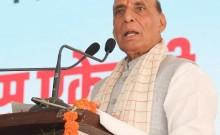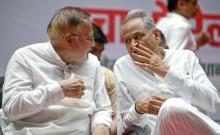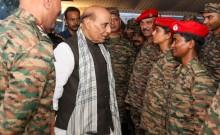
Social media, over the years, has become a strong tool in influencing people, and it is used most in this aspect in business promotion and politics. US President Barack Obama understood the importance of social media and used it quite well to get elected for his first term in 2008. Now, it seems the same social media is being misused to tilt the results of the current election in favour of Donald Trump.
A research was published in First Monday, which claims to be the "first openly accessible peer-reviewed journal solely devoted to research about the internet." The study has been done by Alessandro Bessi, a visiting assistant researcher at the University of Southern California Information Sciences Institute, and Emilio Ferrara, a research assistant professor at the University of Southern California and research leader at the USC Information Sciences Institute.
What does the study say?
A report from the news section of the USC quoted Ferrara as saying: "Software robots masquerading as humans are influencing the political discourse on social media as never before and could threaten the very integrity of the 2016 US Presidential elections." Software robots are often referred to as bots for short.
The researchers said in the study: "By leveraging state-of-the-art social bot detection algorithms, we uncovered a large fraction of user population that may not be human, accounting for a significant portion of generated content (about one-fifth of the entire conversation)." In other words, Bessi and Ferrara managed to uncover that around 20 percent, or nearly one out of every five tweet on the US presidential elections has been posted by one software robot or the other.
They said in the study report that they "estimated that about 400,000 bots are engaged in the political discussion about the presidential election, responsible for roughly 3.8 million tweets, about one-fifth of the entire conversation."
How much data was used?
The researchers said in the conclusion of their study: "We collected tweets posted during the period between September 16 and October 21, 2016, related to the election using the Twitter Search API and a manually compiled a list of keywords and hashtags. This procedure yielded over 20 million tweets generated by nearly 2.8 million distinct users." Crunching numbers, we can see that 3.8 million bot tweets among a total of 20 million comes to 19 percent of the total.
Level of sophistication of bots
The researchers also said that the people who created these bots have been trying to lend them a degree of legitimacy so that they do not get identified as what they are and therefore get shut down.
They were quoted as saying by the USC news report: "They [the bot-creators] do so by stealing online pictures, giving them fictitious names, and cloning biographical information from existing accounts. These bots have become so sophisticated that they can tweet, retweet, share content, comment on posts, 'like' candidates, grow their social influence by following legit human accounts and even engage in human-like conversations."

















